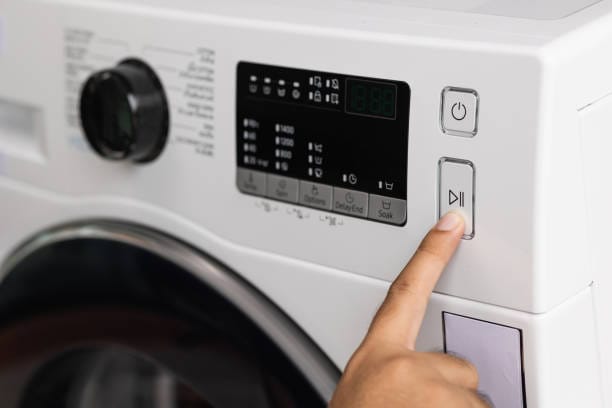In the field of industrial automation and control, the conditions can be very severe. Equipment is also subjected to extreme temperatures, constant vibrations, and corrosive substances to name but a few. As you can imagine, these are rather challenging environments, which means that only high-quality and durable sensors will suffice. Full metal housing proximity sensors have therefore developed into the most popular solution for such applications due to their durability and accuracy at the point of application. In this article, we discuss why many proximity sensor suppliers opt for these sensors and how they improve industrial processes.
Unmatched Durability in Extreme Conditions
Non-contact object detection is critical in manufacturing and automation and this is where proximity sensors come in handy. Full metal housing proximity sensors are especially appreciated for their design, which is highly resistant. The metal casing protects the internal components from mechanical forces, dust, and water, which enables the sensors to work perfectly in conditions where plastic-based sensors would not function. This durability means that there will be less time that the operations will be closed for repairs or replacement hence cutting on the maintenance costs and boosting productivity. These sensors are very reliable and should be used in the reduction of operational risks and costs that are associated with equipment failure thus improving the overall operational reliability in the harsh environment.
Improved Chemical and Corrosive Resistant
Industrial settings may cause equipment to be subjected to corrosive agents and chemical solutions. Full metal housing proximity sensors are made of stainless steel or brass materials that are not easily corroded. This makes them suitable for use in industries like chemical processing, metal working and any other industry that exposes the equipment to harsh chemicals. This resistance helps to preserve the sensors’ physical and operational characteristics regardless of the environment. These sensors offer chemical resistance that prevents the frequent failure of equipment and increases the durability of machinery, which in turn stabilizes the production process.
Better Performance at High Temperatures
Heat affects the efficiency of the electronic devices and their components. Full metal housing proximity sensors are created to be resistant to heat and are often capable of operating in temperatures that are much higher than those that are safe for plastic-housed proximity sensors. This makes them ideal for use in industries such as metal fabrication and glass manufacturing where high temperatures are the norm. This capability makes it possible for them to work under such conditions and deliver accurate, dependable results that eliminate equipment breakdowns or flawed products. This high-temperature capability is important for sustaining the quality and productivity of heat-sensitive operations. Furthermore, these sensors are highly resistant to high and low temperatures, which makes it possible to use them in various thermal processes, which require accurate measurements for quality control and safety, making it impossible to imagine industries that operate 24/7 in conditions of high heat. It also minimizes the chances of sensor failure, which is very important in constant, critical production processes where any loss of time can lead to huge losses.
Most Suitable For High Vibration Environment
In industries where there is a lot of vibration from the machinery for instance the automobile industry or industries that deal with heavy machinery, the sensors used must be able to provide accurate information despite the interferences. Full metal housing proximity sensors are made in a way that they can handle vibrations that would otherwise affect the performance of other less robust devices. Its construction is very rigid to reduce the effects of vibrations that may cause damage to the equipment, making them accurate and long-lasting. The durability of these sensors in high vibration conditions assists in exercising accurate control over the machinery that is required for achieving quality production results and reducing the possibilities of failure. The anti-vibration features of these sensors also make them suitable for use in industries such as construction and mining where equipment is constantly subjected to shocks and vibrations. This capability makes the sensors able to perform their tasks without being often recalibrated and hence they are cheap and reliable for use in industries where equipment has to work under physically demanding conditions. They are also reliable and can operate continuously, which is crucial for giving feedback and monitoring the parameters of industrial processes, thus guaranteeing their safety and effectiveness.
Versatility and Availability
Suppliers of proximity sensors understand the importance of having a single sensor that can be used in different industries. Full metal housing proximity sensors are of various types such as inductive, capacitive, and magnetic depending on the application and the environment. This versatility makes it easier for businesses to find the right sensor for their particular needs. Moreover, when it comes to purchasing analog output proximity sensors, these suppliers provide a variety of products that can easily be incorporated into current industrial systems and include both analog and digital outputs to enhance the monitoring and control capabilities. This adaptability makes it possible for industries to meet new technological trends and production requirements hence optimizing the use of sensors in different applications. This wide variety of sensors also ensures that industries can obtain sensors that are not only capable of withstanding the conditions of their specific application but also compatible with their systems. Through offering various types of sensors and formats of outputs, suppliers help industries to enhance their processes and achieve better control over their activities, thus increasing their productivity and efficiency.
Therefore, full metal housing proximity sensors are best suited for tough industrial applications because of the features such as chemical resistance, high temperature capability, vibration proof and compatibility with various applications. These sensors make it possible to have continuous and reliable operations which are very important in industrial applications. When it comes to purchasing the analog output proximity sensors or any other type of proximity sensors, proximity sensor suppliers offer a plethora of choices that can meet these stringent requirements. Through the use of these strong sensors, industries are able to reduce on the maintenance costs hence improving on the overall performance and competitiveness of the industries.
Also Read: Working with Booth Builders in Las Vegas






